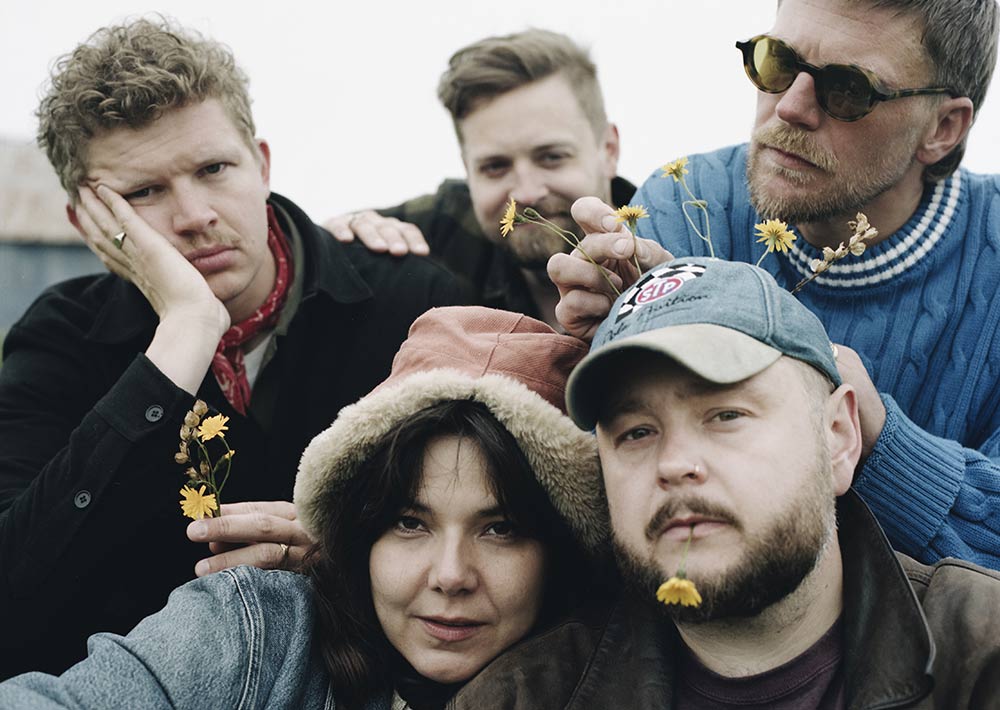
Of Monsters And Men’s Nanna Bryndís Hilmarsdóttir: “You have to really let go of your ego when you’re in a band.” Photo: Eva Schram
The Icelandic indie-folk icons return with their first album in six years and here Nanna reveals how it was made
Since emerging from Reykjavík’s windswept indie scene in 2011 with My Head Is An Animal, Of Monsters and Men have dealt in dualities. Balancing intimacy with grandeur, their songs swell like volatile weather systems before collapsing into moments of fragile quiet. Their breakthrough single Little Talks, at once raucous and ghostly, became an anthem of its era. The track carried them from local acclaim to international attention and has now surpassed one billion streams. The cinematic sweep and emotional nuance of their music has made it a natural fit for film and television, and can be heard in The Hunger Games and The Secret Life Of Walter Mitty, to name just two examples.
 Six years on from their last album, they now return with All Is Love And Pain In The Mouse Parade, a record that finds its strength in subtle restraint. Songs such as Fruit Bat and Barefoot In Snow test the edges of stillness and eruption, while The Actor and Ordinary Creature chart the push and pull between distance and connection. Highlighted by the layered voices of Nanna Bryndís Hilmarsdóttir and Ragnar “Raggi” Þórhallsson and overall dynamics, the band has found its way back into effortless sync.
Six years on from their last album, they now return with All Is Love And Pain In The Mouse Parade, a record that finds its strength in subtle restraint. Songs such as Fruit Bat and Barefoot In Snow test the edges of stillness and eruption, while The Actor and Ordinary Creature chart the push and pull between distance and connection. Highlighted by the layered voices of Nanna Bryndís Hilmarsdóttir and Ragnar “Raggi” Þórhallsson and overall dynamics, the band has found its way back into effortless sync.
Having stepped briefly into her own world with 2023’s solo debut How To Start A Garden, Nanna now leads the group into a subtler, more human landscape – where endings and beginnings are never far apart…
Hafdís Huld on song, on location in Iceland
How did you know it was the right time to start writing and recording together again?
“Every time we finish an album cycle, we start immediately working on the next record. But, before this album, we were on the road touring our previous album, and then COVID hit. We only managed to get halfway through the tour… We didn’t know when we were going to be starting this process, but slowly we just started working on it. Also, there was a lot of other things: people in the band started to work on other projects, there were babies… life happens, and we were then working on the record simultaneously.”
Are you all bringing in ideas that you’ve already got, or is it a complete clean slate and you have to work on the songs together?
“We do it all sorts of ways. For this record, one person might bring something in, or we might work on something together. It’s a bit of chaos sometimes, the process.”
What’s your preferred approach for coming up with the initial ideas for lyrics or melodies?
“It does change for me. My preferred thing right now is to sit down with the guitar and play until something starts to emerge. With the lyrics as well, I never write lyrics before. I always let it come afterwards. There might be a little spark, emotion, or feeling, and that will guide it. I really do like to marinate for a while. That’s my preferred approach right now.
“But in the past, it’s been all kinds of ways. I feel like, with a lot of musicians, they sometimes hit the wall with their creativity and then they need to search for other ways. There was a while where I couldn’t stand the guitar anymore. I didn’t want to look at it and I needed to find something else; whether it was the piano or programming something, or trying to find something that would move me, but now I’m back at the guitar.”
And is there that one guitar that you tend to write on?
“Usually, it’s my Martin. I have a 00-15M and a 000-15M. But right now, this Gibson [ES-125 student guitar] is my guy. It’s a bit rough, and tiny – it’s a smaller version. It sounds kind of bad, but there’s something about it I really like it.”
View Gibson ES guitars on Gear4Music
Do you find that instruments have their own personalities and bring out different songs from you?
“I feel like it does influence what you’re doing. If I have an acoustic guitar that really sings out, that will bring something out of me. But then, this guy, he doesn’t really sing, he’s very dull, and that brings a whole new thing.”
You say you marinate before committing to the lyrics. Is the rest of the track being built up behind you, or is it the simple guitar parts that you’re marinating on?
“It’s different. A lot of times, what we will do is, if I bring an idea to the band, then that might be how I do it… where I’ve been playing it a lot, and then I bring it in, and then we all work on it. But it’s all kinds of things. I’m not the only writer in the band, there are three of us who are the main writers. We will send each other things, and we will go back and forth, or we’ll meet up and work on things.
“Raggi, the other singer, and I, we write so much together. We have a way of writing, especially because we also write lyrics together in the band. It’s years of knowing exactly what the other person is thinking.”
How do you know which bit in the song you’ll be singing and which bit Raggi will sing?
“It does come instinctually; you have this feeling of who is supposed to sing what. But also, that changes. Sometimes it would just make sense that Raggi sings it, it’s very flowy.”
Do you find yourself writing words that you think will sound nice if he sings them, and then writing words you think will sound better if you sing them?
“If I’m singing something or if Raggi is singing something, it’s usually that person who has written that part, but not always. Like, for Ordinary Creature, one of the songs on the record… originally that is Raggi’s song. So, he wrote that part but then we tried it out and it felt good [for me to sing]. It doesn’t always happen, but sometimes it happens.”
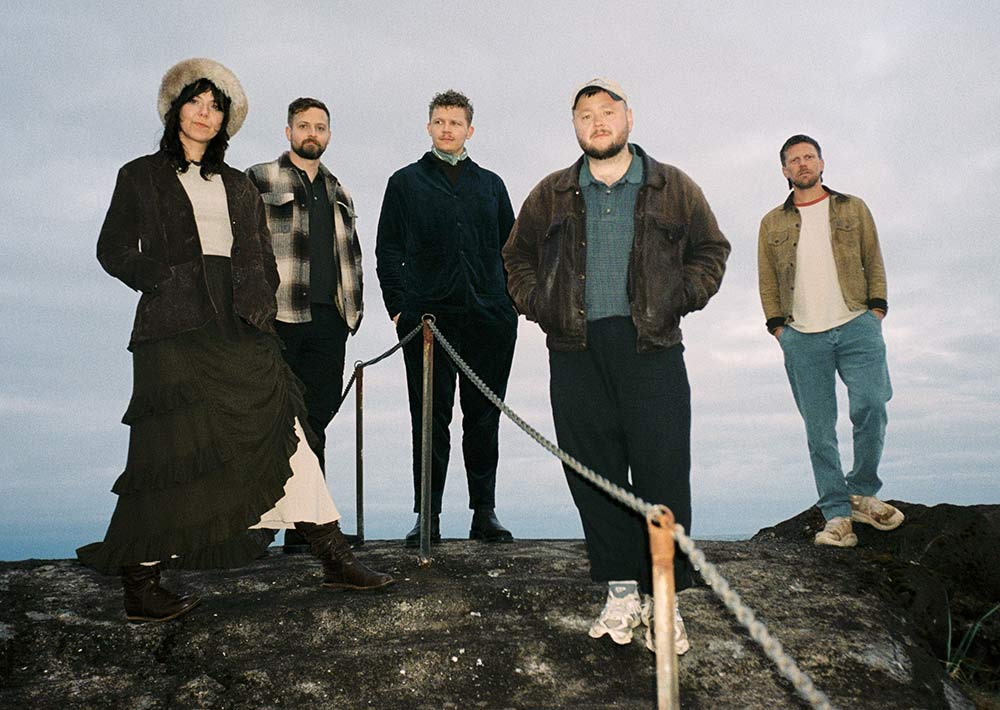
Of Monsters And Men’s Nanna Bryndís Hilmarsdóttir: “A lot of what we gravitate towards is the opposites. That’s a huge part of who we are.” Photo: Eva Schram
Could you please pick one of the songs that originated with an idea of yours and talk us through the writing process?
“We have a song called The Actor. I did a solo album a few years ago, and that song was supposed to be on it. But then I had this feeling that it sounded like a band song. So, I decided to hold onto it.
“I showed them the demo; I’d fully recorded that song and it was ready, I could have put it on my record, but I decided not to. I played it to them, and I think they immediately had the thing of, ‘Oh yeah, we totally know what to do with it.’ It’s different from what I did, which is the cool thing about being in a band – you bring something to people, and you have maybe a rough idea of what you want to do and sometimes it doesn’t go that way, at all.
“We all bring our own thing into it. You have to really let go of your ego when you’re in a band, like, maybe I had this idea for it and I wanted to go there, but that’s not what the song is supposed to be when you’re working as a five-piece band.”
Was it harder to be in that band environment having done your solo album, or did that make it easier?
“I think it was actually easier. Part of why I did How To Start A Garden was also… it was for a lot of reasons, but one of them was this feeling of, ‘I have these songs and I want them to sound a certain way.’ I had a very specific way I wanted them to be. I wanted to really lean into the quieter parts, which is sometimes a little bit difficult within the band.
“We have a lot of quieter parts, but we also like to go big. I wanted to stay quiet for a little bit longer. I felt like it was really good for me to explore that part of myself and let these songs go in that direction. Now, coming back with the band, I do feel like it’s actually easier. I think I’m less attached than I was before, because it can be hard when you really care and have such a clear idea for a song.”
And in that instance, when you have a clear idea for a song but it goes in a different direction, do you tend to be pleased with the results?
“Well, I’m not right all the time! I will like something and I want it to sound a certain way, but it doesn’t mean that it’s better. I’m blown away all the time by the guys and what they come up with.”
The album has great dynamics. There are some quiet moments like in the middle of Fruit Bat and the last couple of songs, but then you have a song like **Barefoot In Snow which has that constant crescendo. How does that get created in the studio?
“We’ve talked about it a lot, this feeling of trying to restrain yourself – because you always want to go bigger and bigger. There were moments where I feel like we were really trying to hold back. But then, you have Fruit Bat and you want it to build and build, become very big and get lost in the outro part. That song… Arnar [Hilmarsson], our drummer, was playing the piano in the studio and it sounded really beautiful. Then, I started singing on top of it, and we all started to build from that place.
“We produced this album ourselves, but we did get some help. We co-produced Fruit Bat with Josh Kaufman, who worked a little bit on my record and is this incredible musician and producer. We got him to come over. The reason we really wanted to do that is because, at that point in the album-making process, it had just been the five of us and our engineer Bjarni Þór Jensson. He’s a huge part of this record and how it sounds. We were getting a little bit lost, feeling like we needed somebody to come in.
“What’s so great about Josh, is that he has this touch. He was like, ‘Okay, we’re playing in the room together.’ We wanted to do that; to be in a room together, playing, and really making sure that we were building the song up naturally. So, it was us and Josh in this room, our studio, playing. It was live and that’s the foundation, and then we added on top of it. It was really important for Fruit Bat to have that element of us interacting with each other, because that sometimes get lost in the studio – you’re layering and there’s no feeling.”
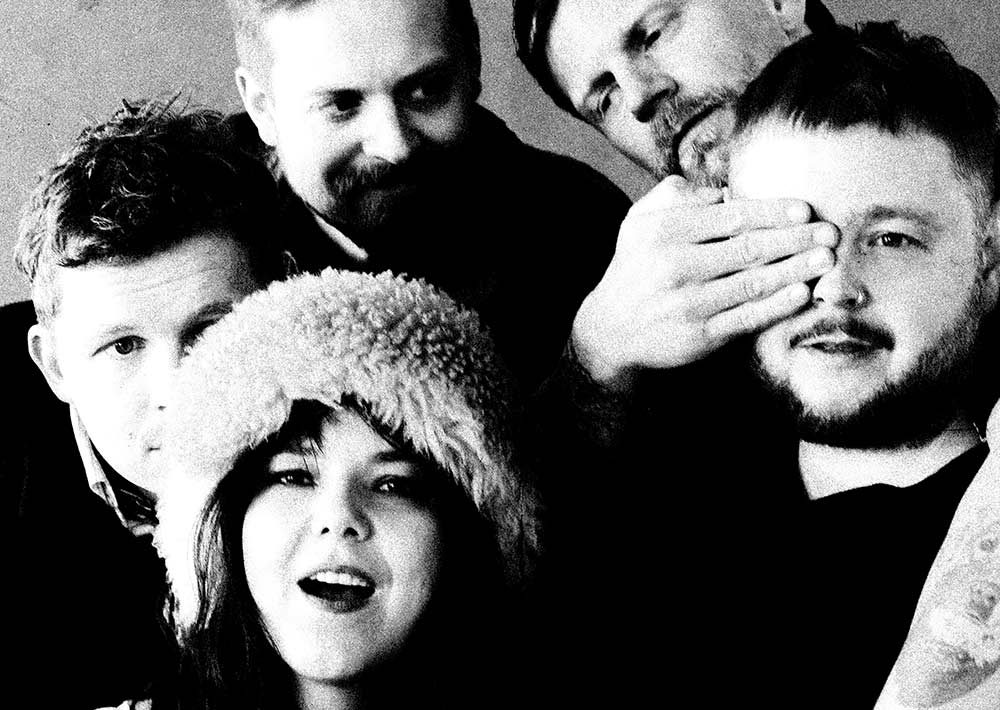
Of Monsters And Men’s Nanna Bryndís Hilmarsdóttir: “I want to be in a place where I am always inspired to write.” Photo: Eva Schram
Do you like working in the studio or prefer the initial stages?
“Sometimes the studio is hard, when you’re feeling lost, but I do like it. Especially when you have days where a lot of things happen and you stay up very late. You’re working and it doesn’t feel like you really know what you’re doing, and it’s all loopy and strange, and then you go back the next day and you’re like, ‘Ah!’ or you’re like, ‘Oh shit, we need to throw that out the door.’”
Are you perfectionists who like to tinker with every little part and keep working and working?
“I think the band is a bit of a perfectionist. We can go on forever and ever, and we really want to make multiple versions of things, like, ‘It’s not good enough yet.’ Me personally, I’m less like that. I think I have an easier time to let go.”
Do you treat an album as one body of work, or more of a collection of songs you’re currently working on?
“We treat it as one thing, but not in the beginning, it’s just collecting songs. Lyrically, we don’t go in with a theme of like, ‘This is what we’re writing about.’ It starts to reveal itself little by little. Then, once you have this picture, we definitely do have this feeling of it’s a whole piece.
“I really love trying to connect songs, like The Block Into Mouse Parade. The imagery, it’s kind of the same. It’s not one story, but it lives in the same world. You have the story from The Block and it travels into the story of Mouse Parade.
“In the very end, we’re working on everything simultaneously; the songs are in different stages, but lyrically, we’re still working until the very end. So, there are moments where we realise we’re quoting a song from earlier on, and it’s nice to connect them in that way.”
Was there a theme that revealed itself to you across the songs?
“Raggi and I like to write in this kind of conversational style, but we then transitioned from it. For this record, there was that sense of conversation again, and storytelling in a way that we used to do more of. We returned back to it, and it came very naturally. It was something that felt right.
“Even now, I’m having these connections. We were constantly talking about buildings for some reason, and that’s something that I didn’t quite put my finger on when we were making it. There’s some thread there. There’s a song called The End at the very end of the record, and there’s also a song called Tuna In A Can. To me, those songs connect, because they’re both alluding to the end, or something ending. There’s a lot of themes of things ending on this record, and beginning.”
Do you it when the album’s not yet been released and the songs are still just yours, or are you desperate for it to be out?
“Right now, I am kind of desperate for it to be out there. It’s been all kinds of ways for me in the past, but at the moment, I definitely want it to be out, maybe that’s because it’s been a minute. We’re just excited to have the whole thing out there.”
Are you ever thinking about the wider world, the audience, and whether the songs might work for sync, during the writing/recording process?
“For me personally, it doesn’t really come to my mind a lot, and I kind of like that. The few times that it has, I feel like it’s distracting. It distracts me a little bit when the outside world is suddenly in this very personal space. I prefer to keep it separated until the very moment where you’re thinking, ‘Okay, it’s actually out. Oh shit.’ I don’t want any of that while we’re writing.”
Do you write to briefs much for TV and film opportunities, or is it more the case of stuff that you write gets picked up?
“It’s mostly that, yeah, we haven’t done a lot of writing for a specific thing.”
What do you think it is about your songs that makes them so appealing for film, TV, and elsewhere?
“I’m not quite sure, but I’m going to try to analyse this… There are songs that I think people know us for, like Little Talks. Then, there’s another part of us that I really enjoy going there. We all really enjoy going there, where the feeling that is driving it, there’s no static feeling… the thing that we were talking about earlier, the climb, you know, the quieter parts mixed with the bigger parts.
“A lot of what we gravitate towards is the opposites. That’s a huge part of who we are. If, on the surface, you don’t know very much about the band and you only know about Little Talks, it might be surprising sometimes for people to get to know the other part of us, and that part maybe gets picked more by sync. I don’t know, it’s fun to think about, but I don’t have a good answer.”
As a songwriter, do you have any lasting ambitions?
“The ultimate goal is always to have a career that is long. I want to be in a place where I am always inspired to write, but that’s also impossible; but that I’m always writing, no matter where it goes, that is probably the ultimate goal.”
Lastly, what can people expect from the upcoming shows?
“They can expect a good time. We’ve been working very hard to put together a live show, playing these songs. The new record, it’s pretty great that we’ve been playing them and it feels really effortless and good to play, which has not always been the case. Sometimes we’ve had trouble playing songs after we recorded them, just because you’ve been in the studio and it’s supposed to sound a certain way. But these songs feel like we can be in a room together and play. It feels right, but that’s also the foundation of how we made this record. So, we’re gonna be going out and playing these songs. We haven’t been on the road for a while. We’re all feeling really excited.”


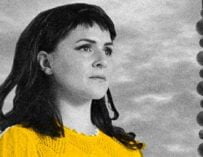


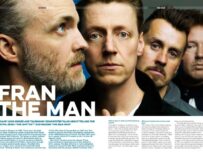

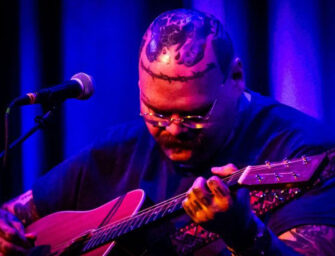
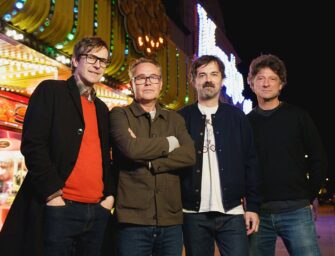

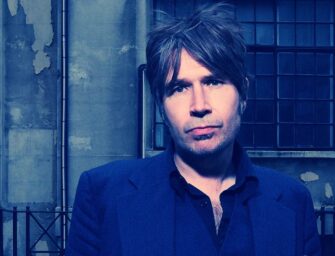























Related Articles